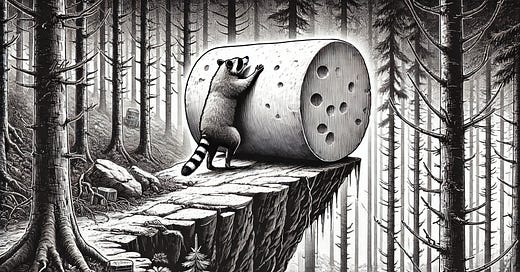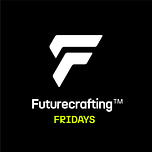I'm consulting a fellow creative business owner. We talk new biz, and I see my client falling for the trap of providing a ton of free work to get a foot in the door.
"Yes, but from there I'll sell them on a $5K project, and earn more trust. Then I'll be in a better position to ask for $30K. Asking for a $50K budget right away is out of question."
As if trust was a continuum… This made me think about the fact of confusing risk with trust.
Assume you don't trust me.
Would you give me $100?
Would you give me $1K?
How about $100K?
You probably wouldn't hand me over a 6-figure check, but depending on your tolerance, you may want to risk a lower figure sum.
That's what you do, buying a can of coke in the vending machine, a train ticket, or hailing an Uber on your way to the airport.
Now, imagine we've known each other for years.
Would you give me $100?
Would you give me $1K?
How about $100K?
Is this situation any different? Surprisingly, not that much.
Trust is a shorthand
It reveals that behind the binary output of every decision, there's a complex net of heuristics helping you arrive at your choice, and that your brain is a power horse doing all the hard work under the hood. If trust is the output, risk assessment is the process.
What does this mean for business?
Trust is a binary gateway
"Trust is binary. Either you trust enough to engage, or you don't."
First, that we confuse the nature of trust. We think trust is a continuum. "Earn more trust to get access to higher budgets". It does not work this way. Trust is binary. Either you trust me or you don't. If you don't, you'll probably cross the street and we won't ever talk. If you do, we'll meet at the table. Everything that follows revolves around assessing and managing risk. If so, Trust is often a well-marketed risk calculation.
Trust is overrated
Second, that we probably overestimate the need for trust. We think we need it, but we don't. The illusion of trust is built on the foundation of risk management. A well-thought-out risk mitigation process could be enough. There are countless situations, where trust is not a factor.
What if trust is an illusion?
For a low-ticket offer, it's replaced by a combination of low-stake and signaling that it's a low-risk situation. After all, everyone's using that vending machine, so it's not a scam and even if things go wrong, all you lose is $5.
"In both low-stake and high-stake scenarios, trust is circumvented by effective risk management."
For a high-ticket, complex scenario, like a $5B M&A, the stakes are too high to even allow for trust to become a thing. Because it's too subjective. It's circumvented by a complex vetting system, company valuation, performance and operations audits, then complex legal frameworks, and ultimately, the founder being held hostage to guarantee the financial performance of an acquired firm for the next few years.
If trust does not come into play in these two, extreme cases, does it in the middle?
Maybe less than you think. And because your business is most likely there, It makes perfect sense to get a more thorough understanding of trust vs risk dynamics.
What if trust is a bump in the road?
The markets are accelerating. The B2B buyers' behavior changes. While a decade or two ago, it was perfectly reasonable to expect your sales to relay the information to the prospect over a meeting. Prospects would call you to learn more about your service.
But these days are gone. Today's buyers prefer to figure out things on their own - do their homework, learn about the solution, and compare options. They would only give you a call when they're near-ready to buy.
This puts way more stress on marketing vs sales.
The world's too fast to run on trust.
Because trust is personal and usually takes time and human interactions to establish, it's becoming a major slowdown in the discovery, vetting, and sales process. If you look at the e-commerce or SaaS market, you'll be astonished by how much 'trust porn' they've developed, primarily to expedite the process, and replace the slow and inefficient process of trust building with trust circumventing. Perceived trust is often just the product of well-managed risk signals.
Guarantees, testimonials, reviews, 3rd party institutions (TrustPilot or G2) — all this is an arsenal to effectively replace slow trust-building with risk management.
"The world's too fast to run on trust. Leverage risk management to expedite decision-making."
A lesson for creative business
There's far more value in teaching one to fish than offering a fish. You've got plenty of food for thought on the subject, and hopefully, my thoughts triggered a mindset shift for you.
To take things home — perhaps by focusing on building trust-based relationships, we're doing ourselves a disservice, slowing the process too much? Maybe your clients don't need to trust you all that much, but what they need is minimal trust to pass the threshold, a solid value proposition, and a robust risk-mitigation package?
All these things can be delivered in your marketing message, making the process self-serve, and freeing your sales and new biz resources to focus on vision, leadership, and a solid value proposition.
Further thinking:
What if focusing on building trust-based relationships is slowing down your business growth?
How can your business leverage risk management to streamline sales and reduce dependency on trust?
What could be the most effective tools for replacing traditional trust-building in your marketing strategy?
How can understanding the difference between trust and risk management transform your approach to new business development?
Stay prolific, and till the next one.














Share this post